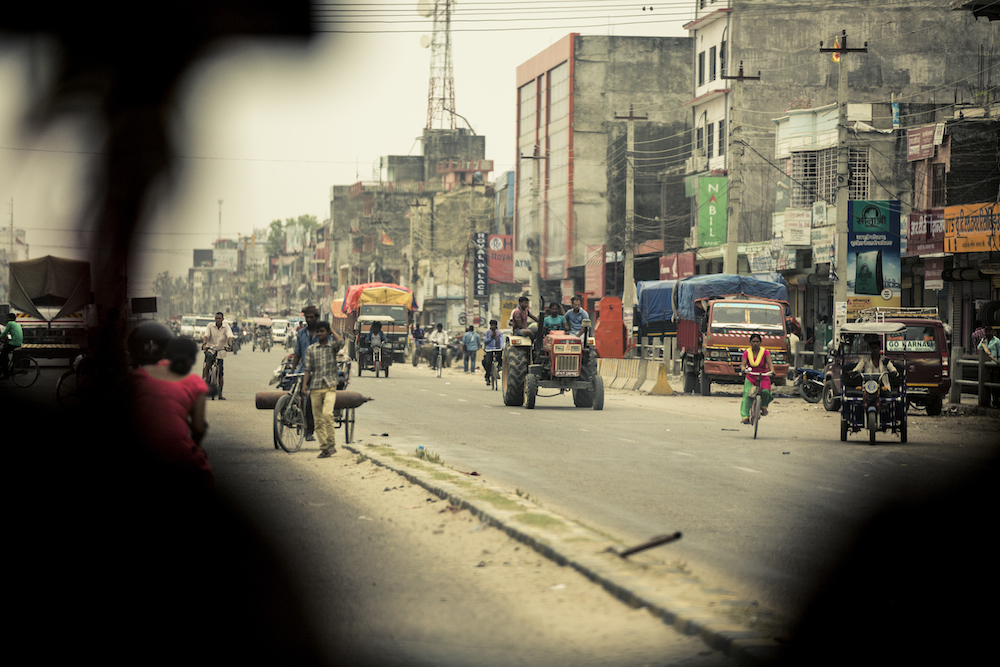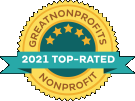
According to the U.S. State Department, about 800,000 people are trafficked across international borders, every year. Because of systemic issues surrounding poverty, economic instability, mass migration due to famine or lack of job opportunity, some of the key elements that make communities vulnerable to human trafficking is a lack of options, and limited public awareness on the subject.
Whether forced into labor or commercial sexual exploitation, countries ranging from low to high in wealth are all deeply affected by this international issue. While these numbers fall along the gender line with 80% of those affected being female, we also see that more than half of those affected are children.
As over 60 million people begin to migrate to escape genocide, famine, lack of jobs, and environmental disasters, how are organizations in the social justice sector answering the call to this urgent and widespread issue?
Tina Sciabica, Executive Director of READ Global, and Swathi Massar, Technical Advisor for IREX, came together to discuss a new strategic partnership, Communities Thrive, aimed at focusing a 26-year-old development strategy to fight this worldwide issue.
What inspired the IREX and READ Global partnership? Why did you decide to work together?
Tina: READ and IREX met as mutual grantees of the Gates Foundation many years ago and started working together on some technology programming. After collaborating for a few years on ICT-related programming, READ and IREX had a deep appreciation for the way the other organization worked. IREX is a much larger organization than READ, but appreciates the community-driven, grassroots approach that READ takes in working with rural communities in South Asia. IREX has deep expertise strengthening local organizations so they can have a greater impact.
Why is it important in this period of time for the partnership to focus on combating human trafficking?
Swathi: Human trafficking is a grave crime that threatens vulnerable communities across the world, particularly in countries like Nepal. Many of the communities where READ operates shared how labor migration, sex trafficking, and child labor threaten the future of their communities, destabilizes families, and prevent young people from reaching their full potential. Given that global issues like climate change, the rise of natural disasters, and political uncertainty will continue to negatively impact communities everywhere, it is important now more than ever to support communities to become stronger and more resilient.
In your opinion, what is a key element of fighting human trafficking?
Tina: There are a variety of factors that lead to trafficking, but certainly a lack of economic opportunity in communities is a contributor, as poor families struggle to make ends meet, they are forced to consider opportunities outside their own communities. Sometimes it can simply be a lack of understanding of the risk or placing trust in the wrong person. We believe that creating more economic opportunities in rural communities will help alleviate the problem, but communities also need to work together to raise awareness of the issue – they need to look out for one another. In Nepal, for example, the many young men leaving the country to become migrant laborers in another country simply don’t understand their legal rights upon arrival in the new country, which makes them incredibly vulnerable to modern slavery. As more community members become educated about their rights and learn to recognize the signs of trafficking, they will look out for others in the community who might also be at risk. READ Centers are natural platforms for raising awareness about trafficking, as community members already trust information that comes from the Centers, and people are used to working together to overcome common challenges.
Swathi: While human trafficking is an intensely complex global issue, there is a lot that communities can do to curb this global scourge. We can support communities to raise awareness of traffickers and trafficking schemes, create alternative economic opportunities for families that would otherwise rely on child labor to make ends meet, and work with local government representatives to strengthen laws and policies to deter trafficking.
The start of this work focuses on communities across Nepal – why Nepal, and do you hope to expand this work into other countries? If so, where?
Tina: Human trafficking has long been a problem in Nepal – for a variety of reasons (e.g, Nepal is one of the poorest countries in the world, and women and girls suffer from a lot of discrimination and are not valued as much as boys/men, plus many men leave the country in search of work abroad due to a lack of opportunities in their own communities – putting them at risk of trafficking. The situation became even more dire after the 2015 earthquakes when many families lost their homes and their livelihoods and are still struggling to provide for their children. Thus, the need for anti-trafficking prevention programs has never been greater in the country.
Swathi: Trafficking is a tremendous problem in Nepal that plagues communities across the country. READ is partnering with 66 communities in Nepal, many of which are located in highly impoverished areas where men travel abroad for employment opportunities, families send their children to work in brick manufacturing factories, and urgently need programs that raise awareness of trafficking, and provide alternatives for viable economic opportunities to tackle this issue. READ’s holistic community development model could help communities there understand the value in educating and investing in future generations of young people, learn about the harmful impacts of engaging in trafficking, and also access alternative income-generating opportunities.
How does this partnership create even bigger impact in communities around the world?
Tina: IREX is a global organization that has worked in more than 100 countries, helping to build local capacity and bringing their programmatic expertise. Though READ is a smaller organization, we have a strong grassroots, community-driven model with great potential to serve poor communities in other countries. And the 104 READ centers opened to date (all still operating) show the model not only works, but works well. Our hope is that by combining IREX’s global reach with READ’s truly local model, we can reach millions more people in new countries around the world with a solution that is both sustainable and customizable to meet the most urgent needs of a specific community.
Swathi: Through this initial partnership, we have observed the sustained impacts the READ Centers have had in their immediate communities, and we knew this model could have a very real impact when it comes to fighting the issue of human trafficking. We wanted to understand the effectiveness of READ’s approach to genuinely community-owned development, and strengthen and scale this powerful model.
What sets Communities Thrive apart from other partnerships you’ve seen in the development landscape?
Tina: It is rare for two organizations to work together in a joint venture. While both organizations are independent, we are also each committing resources to work together toward a common goal of scaling up READ’s work, replicating the model in new geographies, and bringing IREX’s strong programmatic expertise to READ’s existing network of READ Centers in South Asia. We believe one of the areas where we can have a greater impact together is working to combat human trafficking.
Swathi: We each believe in one another’s missions, and are committed to working together to strengthen and scale READ’s sustainable approach to community-owned and led development – to bring it to new geographic contexts.
What is your suggestion for people who want to get involved in fighting human trafficking in all its forms?
Tina: Support an organization that addresses trafficking, whether it is to prevent trafficking in the first place or to support survivors of trafficking. Many people believe that trafficking is a problem that largely affects the developing world, but trafficking is also a huge problem at home in the US. Educate yourself about the signs that someone may be trafficked, and what you should do if you think someone is in trouble.
Swathi: Find ways to support grassroots efforts to combat trafficking, such as supporting community-based organizations, policies that deter traffickers, and changing community members’ attitudes towards engaging in child labor.
Help Fight the Global Issue of Human Trafficking. Make a Donation to Communities Thrive today.





